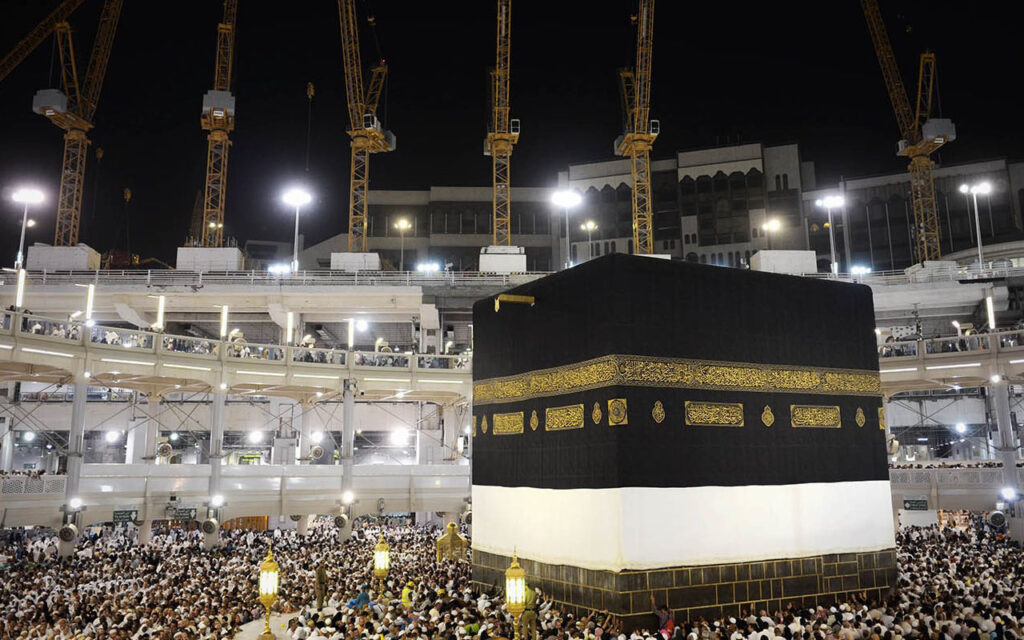
The legality of the powers of a Chief Judge to order the release of prison inmates is not in dispute. But extending such privileges to politically exposed convicts while their victims are still hurting is, in the opinion of stakeholders, a prerogative on the fringe of its abuse, NGOZI EGENUKA reports.
The justice system in Nigeria, though elaborately documented, is still filled with legal uncertainties due to the prevalence of grey areas. It is on account of this, that the judiciary, like other arms of government, is facing scathing criticisms for being on decline.
Oftentimes, politically exposed individuals seldom get the full punishment of the law when they are prosecuted and found guilty. It is either they walk away with ridiculous plea bargain arrangements or get a slap on their wrists. And these categories of individuals are considered ‘unlucky’ for even going through court trials. Many of them walk away with various categories of crimes as they are swept under the carpet for just being a ‘big’ man.
Under Nigeria’s justice system, both the head of the executive and that of the judiciary are empowered by the Constitution to free convicts under the prerogative of mercy clause.
The implication of this is that those influential persons, who ‘unfortunately’ get caught in the web of crime, tried, and convicted, could benefit from this clause and get freedom. Interestingly, the provision was made to provide a second chance for the poor and weak, who have shown in character that they have turned a new leaf while serving out their terms, as well as those who are incarcerated without trial for petty offences.
But it does appear like this provision has been hijacked by the executive and the judiciary. Beneficiaries of presidential pardon for ex-convicts are usually the influential and politically exposed persons.
For instance, in 2022, former President Muhammadu Buhari, granted presidential pardon to former governor of Plateau state, Joshua Dariye, and former governor of Taraba State, Jolly Nyame. Both politicians were serving jail terms for diverting public funds. Another beneficiary of the pardon was the former military general and minister under the Sani Abacha regime, Tajudeen Olanrewaju.
Prior to 2022, the first former governor of Edo State, Lucky Igbinedion, was prosecuted, tried and found guilty of embezzlement of public funds. He was charged by the Economic and Financial Crimes Commission (EFCC) with 142 counts of corruption totaling $24 million through the use of front companies.
In 2008, he struck a plea deal with the commission and returned home with a little portion of the money he was alleged to have embezzled.
The judiciary is now taking a cue by also pardoning jailed politicians. Recently, the Chief Judge of the Federal Capital Territory (FCT) released Chuma Nzeribe, a convict, from the Kuje Prison, who was on May 24, 2022, sentenced to a seven year jail term by Hon. Justice Yusuf Halilu of FCT High Court 14 sitting in Wuse.
Nzeribe, a politician, was found guilty of impersonation, possessing Federal Government’s documents, and using the documents to acquire land in the Maitama district of Abuja fraudulently.
He was freed from prison barely two months after he began a seven-year jail time. He was initially on the run for about a year after being convicted by the Court until he was arrested and sentenced in March 2022.
The Chief Judge of FCT High Court, Husseini Baba-Yusuf, freed him from the Kuje Correctional Centre, Abuja, based on health conditions during his official tour of the prison facility for a decongestion exercise in May last year. Nzeribe is one among politicians that have escaped from punishment after the law found them wanting.
In fact, this action questions the constitutional powers of Chief Judges (CJ) to free convicted inmates serving prison terms. Section 8 of the Administration of Criminal Justice Act (ACJA), 2015 imposed a duty on CJ to appoint high court judges and magistrates to visit detention centres once a month with a view to ensuring that the indigent under trial inmates are not detained without legal justification in line with paragraph 55 of the United Nations Rules for the Treatment of Prisoners adopted by Nigeria.
Similarly, heads of court in other jurisdictions in common law countries, such as India, Uganda and Pakistan, apply similar laws to decongest prisons by releasing indigent prison inmates from prison custody during prison visits.
Pardoning inmates on issues of decongestion is clearly different from releasing convicts, especially those politically exposed. There are a number of political pardons that have occurred in Nigeria, most portraying a narrative that the rule of law exempts the political class.
Like in the case of Nzeribe, some lawyers have argued that the Chief Judge’s conduct went beyond the bounds of his administrative authority and violated the legislation defining the terms for freeing inmates. This raises a serious question about the extent of CJ’s powers in relation to freeing inmates, especially politically exposed convicts.
The Criminal Justice (Release From Custody) (Special Provisions) Act, (1977 No. 19), an Act to empower the Chief Justice of Nigeria and the Chief Judge of a State to order the release of persons detained in prisons in specific circumstances, states that; “Where, in respect of any person detained in any prison in Nigeria, not being a person detained in execution of a sentence of a court or tribunal duly constituted by law, the Chief Justice of Nigeria or the Chief Judge of a State is satisfied that – (a) detention of that person is manifestly unlawful; or (b) person detained has been in custody, whether on remand or otherwise, for a period longer than the maximum period of imprisonment, which the person detained could have served had he been convicted of the offence in respect of which he was detained, the Chief Justice or the Chief Judge may issue an order of release to the officer in charge of the prison and such officer shall on receipt of the order release the person named therein.”
Reacting to the development, a Senior Advocate of Nigeria (SAN), Femi Falana, argued that chief judges and the chief justice of Nigeria are constitutionally empowered to release prisoners deemed to be held illegally. He, however, reiterated that Chief Judges’ release of convicts do not constitute pardons; rather, they are only freed from illegitimate detention.
“To that extent, the government has the right to reclaim these detainees and prosecute them. However, a prisoner who receives a pardon from the president or a state governor is considered a new man (novus homo) because they have been exonerated of all fines and forfeitures related to their offence. See Falae v Obasanjo (No 2) (1999) 4 NWLR (Pt 599) 476,” he pointed out.
According to him, in section 11 of the Prisons Act (Cap P29) Laws of the Federation of Nigeria, 2004, the Chief Justice of Nigeria and the Chief Judges of the states are among prison visitors ex officio. But while the Chief Justice is empowered to visit all prisons in Nigeria, Chief Judges are restricted to conduct prison visits in their areas of jurisdiction, he said. Such visitors, Falana insisted, shall exercise such functions as may be prescribed in respect of the prisons to which their appointments or authorisations relate.
“Since prison is item 48 in the Exclusive Legislative List in Part 1 of the second schedule to the 1999 Constitution of Nigeria (as altered), it is undoubtedly clear that both the Prison Act and the Criminal Justice (Release from Custody) Act cannot be said to be impugned on ground of inconsistency with the Constitution.
“To that extent, the powers so conferred on the Chief Justice of Nigeria and Chief Judges of the states by the Criminal Justice (Release from custody) (Special Provisions) Act cannot be said to be unconstitutional in so far as it is designed to decongest our prisons by ensuring the release of any person detained in any prison in Nigeria, not being a person detained in execution of a sentence of a court or tribunal duly constituted by law.”
Also, the managing partner, The Law Suite, Prince Nwafuru, argued that the power of the Chief Judge or heads of courts to pardon inmates or persons in detention has its root in statutory instruments.
“This power has also been recognised by the Court in the case of Edwin Iloegbunam v Richard Iloegbunam (2001) 47 WRN 72. The statutory source is the Criminal Justice (Release from Custody) Act which has been domesticated as state laws by the States. In the case of Iloegbunam referred above, the Court of Appeal upheld the validity of the Act and the power of the Chief Judge of a State to exercise such power,” he said.
He, however, explained that the exercise of such power has limitations, such as being obtainable only for awaiting trial inmates who are illegally detained or who have been in detention for a period exceeding the maximum prison term for the alleged offence.
According to him, the Chief Judge is not permitted to grant pardon to convicted prisoners as the power to pardon convicted prisoners can only be exercised by the President or a Governor of the State. The power, he stated, cannot be exercised to free offenders involving serious crimes or politically exposed offenders unless there is no clear prima facie evidence against the inmate.
“The guiding principle that should be considered in the exercise of such power is that the Chief Judge must be satisfied that the detention of that person is manifestly unlawful or that the person detained has been in custody for a period longer than the maximum period of imprisonment which the person detained could have served had he been convicted of the offence of which he was detained,” Nwafuru said, adding that any exercise of such administrative power outside the above guiding compass can be challenged.
Abuja-based lawyer, Abubakar Sani, explained that there is a sense in which the power the law gives to Chief Judges ultra vires the powers of the National Assembly. This, he said, is because, whilst the National Assembly legislates for Federal courts, State Houses of Assembly exercise that authority in respect of State Courts and their officers.
For politically exposed convicts, he said there ought to be no difference in principle as the law is no respecter of persons. He, however, added that in practice, given the notorious ‘Nigerian Factor’, the reality is that such people often spare no cost and expense and pull all stops to secure their release from prison, even after conviction.
“Obviously, this includes manipulating whoever can even remotely facilitate it. It would have been otherwise if the Constitution made the provisions directly in the same way that, under the Constitution, State Governors exercise the prerogative of mercy, in respect of State offences. They cannot do so in respect of federal offences and vice versa. To that extent, that practice ultra vires State Chief Judges. Only the Chief Justice of Nigeria can validly order the release of an inmate awaiting trial,” he argued.
Partner, Infusion Lawyers, Stephen Azubuike, stated that the CJ exercises certain discretion to free and decongest the prisons, but added that the power of pardon, which frees a convict from his status of an ex-convict, can only be exercised by the President or Governor.
He noted, however, that generally, the CJ has powers to release a convict from prison, adding that such powers can ordinarily ensure to the benefit of any person irrespective of status. He suggested that the CJ’s discretion to free some convicts from prison shouldn’t be extended to a politician convicted for official corruption. “This is because it sends a bad signal and seems to make a mockery of the fight against corruption,” he declared.












